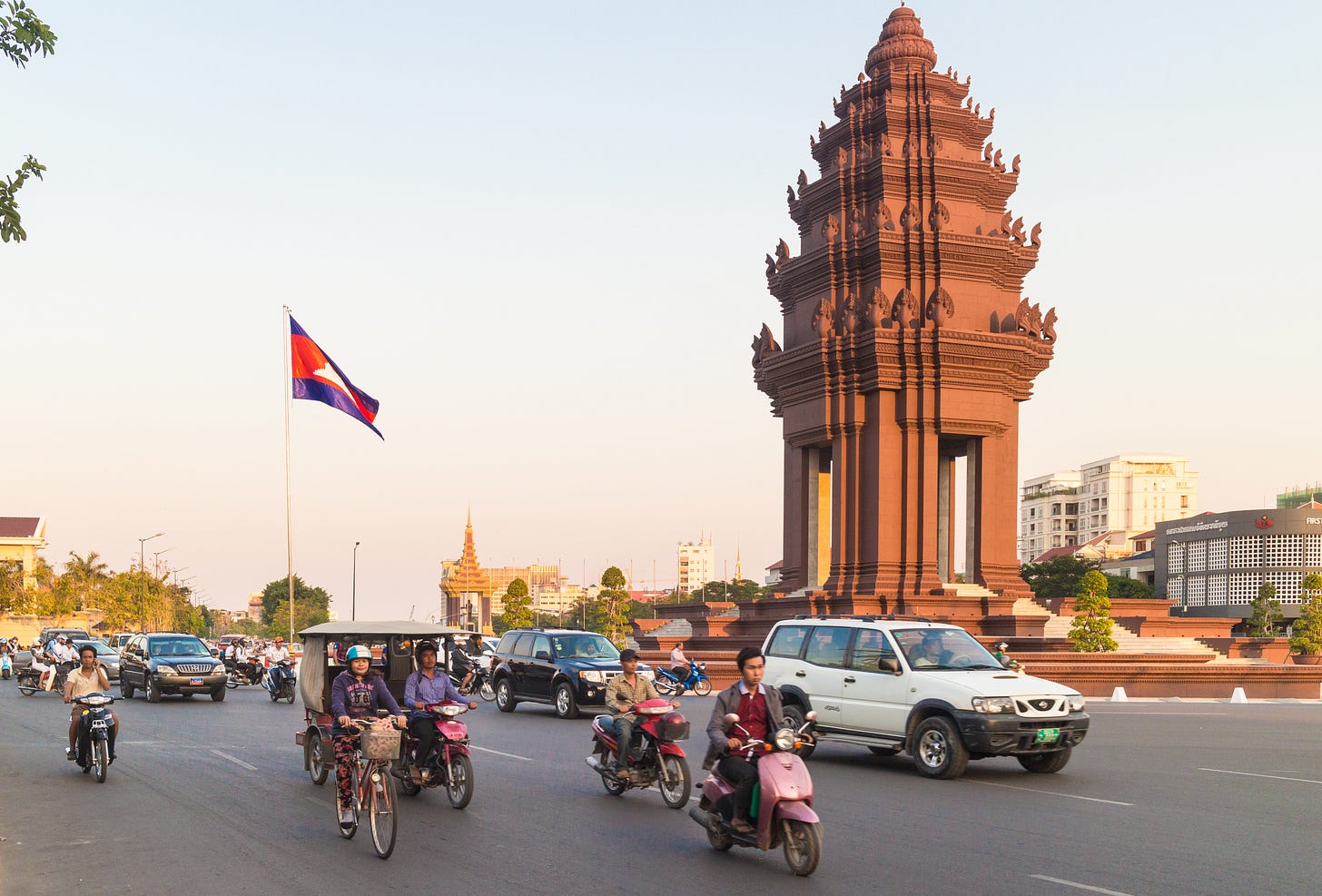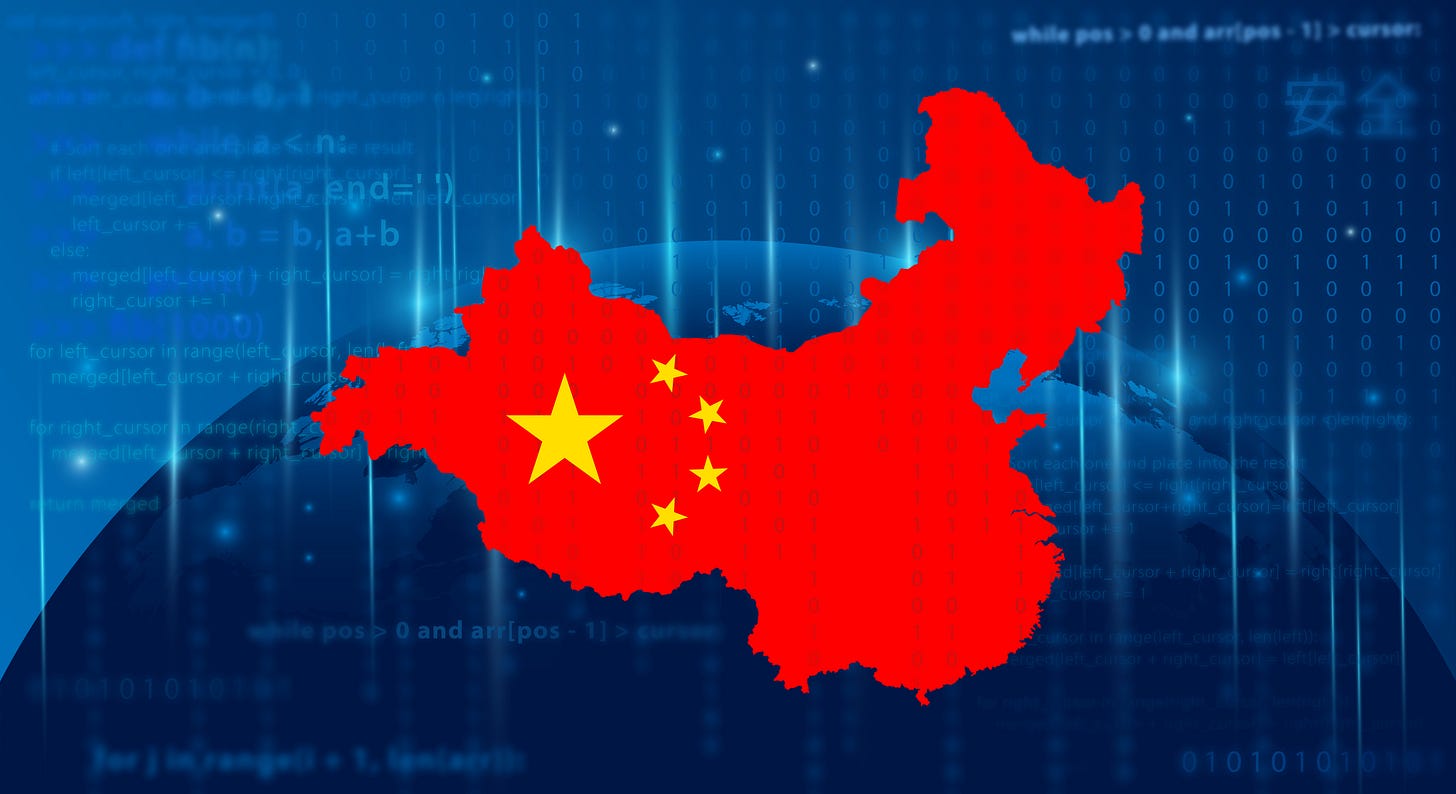Emerging Markets Daily - Oct 21-22
Crypto Use Rising Across EM, Paytm Nears Biggest Ever India IPO, US Intel Warns: Beware Chinese Co's, China Says: No More Crypto Mining, Thailand and Tourism
The Top 5 Stories Shaping Emerging Markets from Global Media - October 21-22
Crypto Use Rising Across Emerging and Frontier Markets
Barron’s
“A Chinese family pays U.S. private school tuition in Bitcoin. A Kenyan working in Germany sends a remittance home, avoiding a fat commission. Cambodian villagers buy market supplies via QR code instead of stacks of cash.”
“While U.S. investors scramble to speculate on the first Bitcoin exchange-traded fund, real-world uses for cryptocurrency are quietly taking root across developing countries, where governments block fiat transactions or middlemen impose exorbitant fees.”
“‘In Africa you might have to fly a suitcase full of cash to trade with the country next door,’ says Ray Youssef, CEO of peer-to-peer crypto exchange Paxful. ‘Bitcoin frees your money from that financial prison.’”
“Crypto use is expanding in two ways in emerging and frontier markets: from the bottom up through increasingly user-friendly exchanges like Paxful or Binance, and from the top down as governments roll out official digital currencies. An unlikely pioneer in this category is Cambodia, whose Bakong system has attracted six million users since launching a year ago, says Claire Wilson, a partner at Asia-based consultant Holland & Marie.”
“The bottom-up movement is more what Bitcoin’s founders probably had in mind. Nigerians, for instance, have flocked to crypto transfers for the $25 billion or so they receive annually from relatives abroad, Youssef says. This gets around an official exchange rate that can be 30% lower than the real black market rate. South Africans use crypto to exceed their government’s limit of one million rand ($68,300) in capital export a year.” Craig Mellow reports.
Paytm Gets Approval For India’s Biggest IPO
Bloomberg
“Paytm, India’s digital payments pioneer backed by SoftBank Group Corp., received approval from the markets regulator that clears the way for its planned $2.2 billion initial public offering.”
“The Securities and Exchange Board cleared the IPO, which will be India’s biggest so far, on Friday, according to people familiar with the matter. The company could list in Mumbai by mid-November, they added, asking not to be identified as the information isn’t public.”
“The Noida-based firm, which is also backed by Berkshire Hathaway Inc. and Jack Ma’s Ant Group Co., hopes to tap strong investor demand that’s sent the shares of fellow unicorn Zomato Ltd. soaring after its July listing. Formally called One97 Communications Ltd., if Paytm achieves its 166 billion rupee ($2.2 billion) IPO target, it would surpass the more than 150 billion rupees raised by state-owned Coal India Ltd. in 2013.” Saritha Rai reports.
US Intel Officials Warn Companies Involved in Critical Industries in China
Financial Times
”US intelligence officials have launched a campaign to warn American companies about the risks of interacting with China in critical industries, in a push to make it harder for Beijing to obtain technology and data.”“The National Counterintelligence and Security Center wants to raise awareness about the links that Chinese companies have with the government, military and intelligence services. The effort is targeted on five sectors: artificial intelligence, quantum computing, biotechnology, semiconductors and autonomous systems.”
“Michael Orlando, acting director of the NCSC, a branch of the US intelligence community that focuses on threats from China, said Beijing was ‘using an array of legal, illegal and quasi-legal’ methods to obtain intellectual property and data on American citizens that it would use to try to dominate critical industries.”
“As part of the push, Orlando and his team are contacting US companies about the risks, saying that many businesses were not aware of the direct and hidden links between Chinese companies and universities and state security, or that Beijing was using a ‘whole of government approach’ to obtain technology.” Demetri Sevastopulo reports.
China Cracks Down Further on Crypto Mining
South China Morning Post
“China’s top economic planner is seeking to eliminate cryptocurrency mining activity in the country, months after a government crackdown that turned dozens of companies from model energy consumers into pariahs in the world’s second-largest economy.”
“The National Development and Reform Commission (NDRC) on Thursday added mining of bitcoin and other digital tokens to a blacklist of industrial activities that must be abandoned, as the country pushes to reach carbon neutrality by 2060.”
“It was the sole revision made by the NDRC in its review of the country’s latest Industrial Structure Adjustment Guidance Catalogue, which took effect in January last year. The catalogue divides domestic industries into three categories: those that should be encouraged, restricted and eliminated.”
“Other activities on China’s industrial blacklist include manufacturing disposable dinnerware made of plastic foam and disposable cotton bud made of plastic, as well as coal mining at nature reserves, tourist attractions or protected drinking water source zones.” Coco Feng reports.
Thailand Re-Opens for Quarantine-Free Tourism For 46 Countries
Nikkei Asia
“Thailand will allow quarantine-free entry to travelers from 46 countries and territories, including the U.S., China and the U.K., from Nov. 1 in a bid to boost tourist inflows into an economy ravaged by floods and COVID-19.”
“Thursday's announcement was well above the 10 countries that the government had earlier proposed for its plan to reopen to international visitors. Other places on the list include Australia, Germany, Malaysia, Saudi Arabia, Singapore, Japan, South Korea and Hong Kong.”
“Visitors will still need to show proof of a negative RT-PCR test result for COVID-19 taken before they leave their home country. They also must take another test upon arrival.”
“Tourists from countries not on the list will be able to visit Thailand but must undergo quarantine. Currently, a seven-day quarantine is mandatory for those arriving by air and a 10-day stint for those arriving by sea.” APORNRATH PHOONPHONGPHIPHAT reports.
“Suffering has been stronger than all other teaching, and has taught me to understand what your heart used to be. I have been bent and broken, but - I hope - into a better shape.”
― Charles Dickens, Great Expectations




